Our History
A Legacy of Helping Others
In 1982, a group of concerned citizens banded together to form what is known today as Family Crisis Centers. At a time when discussing domestic violence was taboo, this group of people felt called to step in and serve others.
As the years carried on, Family Crisis Centers continued responding to community needs through the development of new services. We positioned ourselves as a leading expert in serving victims of abuse and crime, continuously evolving to ensure our services empower people to live a life free from violence.
Continuing the Legacy Today
Family Crisis Centers continues the legacy of helping others today. We walk alongside others to encourage safety, healing, and freedom through the following services:
Our History
A Timeline of Dedication
Here is how Family Crisis Centers’ history of serving others has developed through the years.
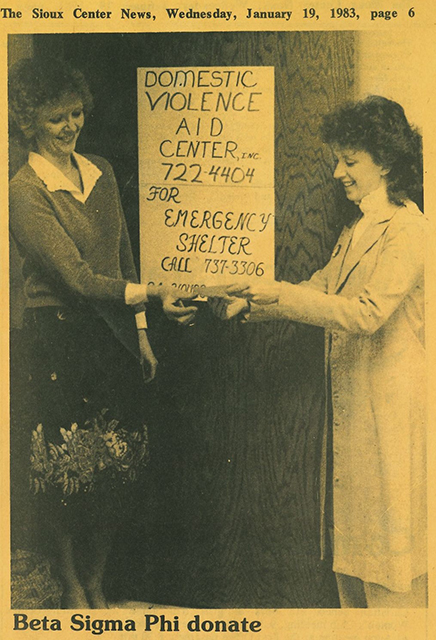
1982
A group of concerned citizens recognizes the need for domestic violence resources in the community. They created the Domestic Violence Aid Center, now known as Family Crisis Centers.
1999
American State Bank in Sioux Center donates a house to serve as Family Crisis Centers’ first shelter for domestic violence victims.
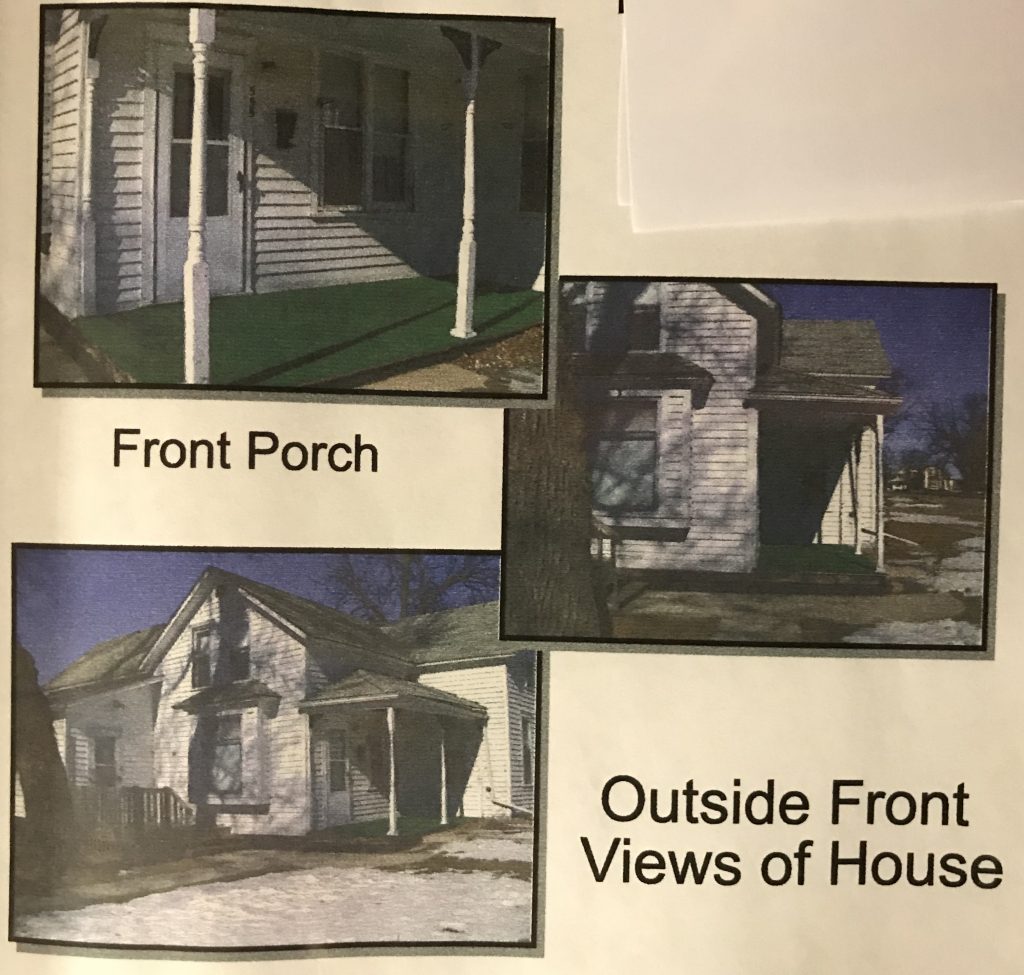

2001
Opened a permanent shelter with office and counseling space.
2008
Opened a thrift store known as Melissa’s Hope Chest. The thrift store allows FCC clients to shop for necessities for free. All proceeds go to Family Crisis Centers to support the mission.
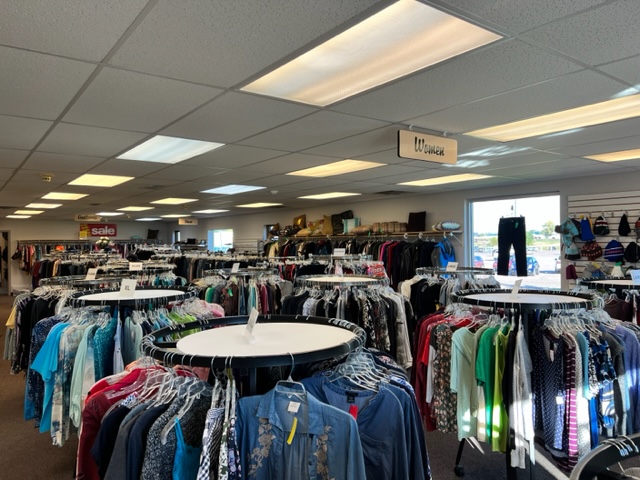
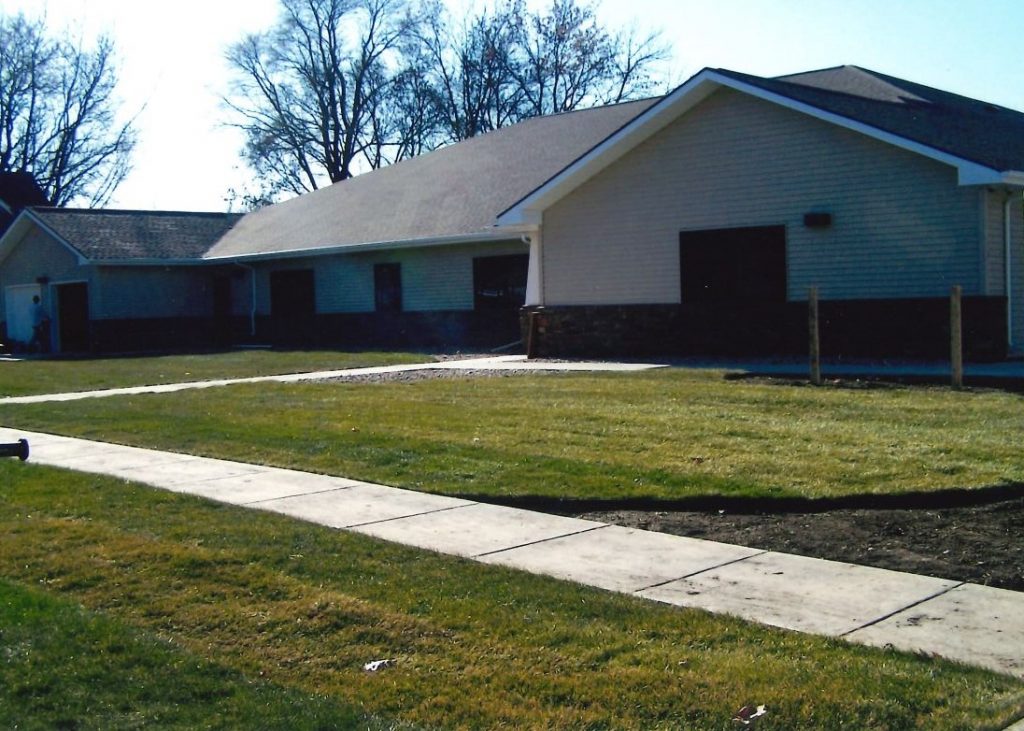
2009
Opened a new facility with on-site housing to accommodate growing victim numbers and needs.
2013
Expanded domestic violence service area from 4 counties to 17 northwest Iowa counties.
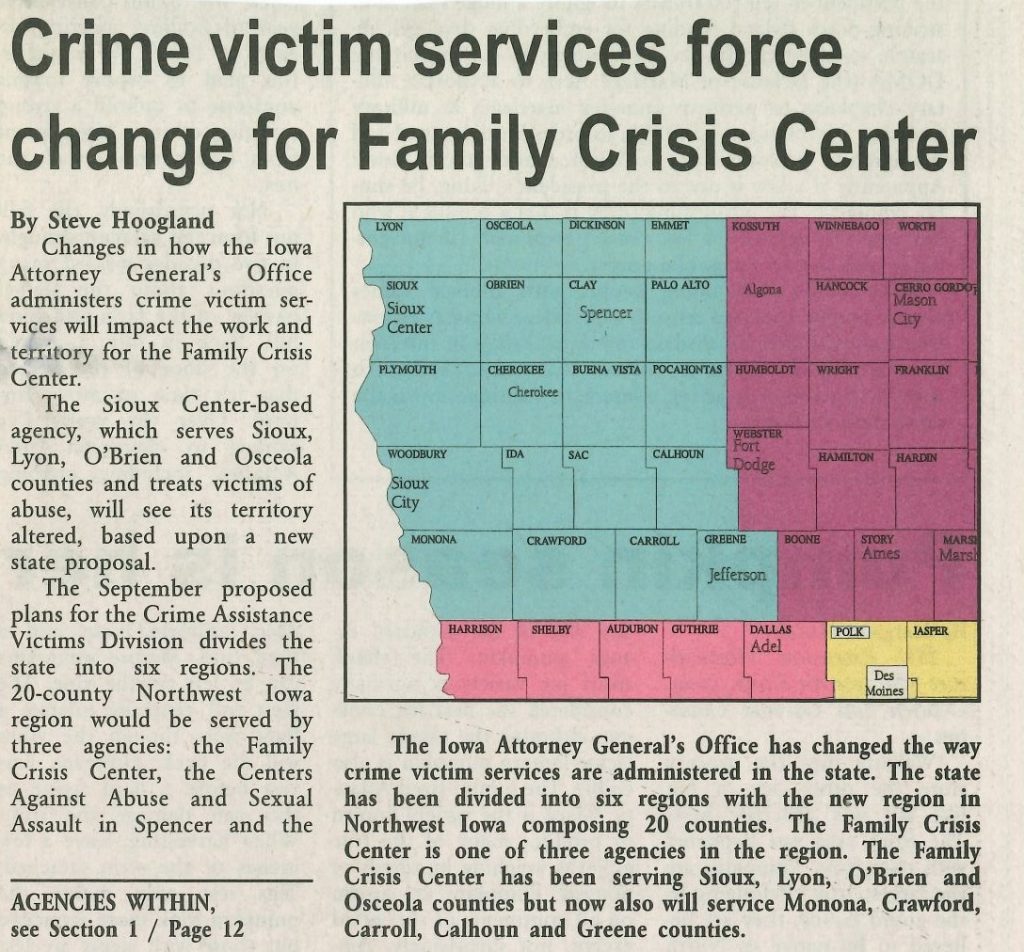
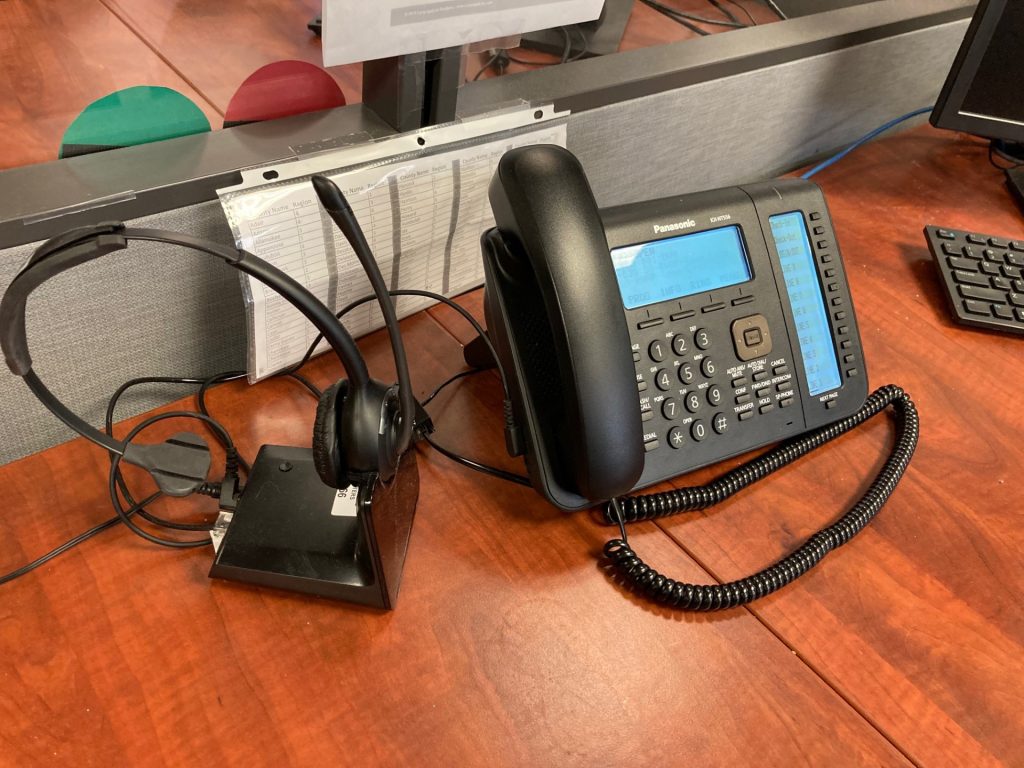
2015
Added a 24/7 statewide hotline to answer calls from people in all 99 Iowa counties.
2016
Expanded services to include Advocacy at Health Clinics in 17 counties.
Added a Rapid Rehousing program to better serve victims of domestic violence.

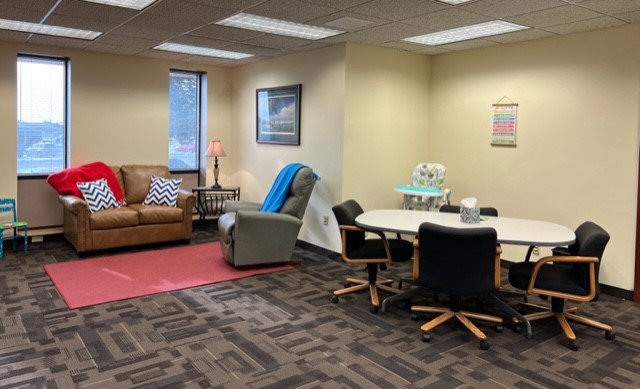
2021
Started serving homeless individuals in 10 northwest Iowa counties.
Added family visitation & exchange services to provide supervised visitations and exchanges to have a greater impact on the lives of children.
